Against this backdrop, we traced the fair’s pulse booth by booth, observing how galleries positioned their artists, how curatorial strategies played out, and how the market responded. In the pages that follow, we share highlights and analysis of the edition, with a focus on the dialogues emerging between Brazilian and international practices.
In parallel, our team provides bespoke advisory services, ranging from acquisition guidance to privileged access to private collections and specialized support at national and international fairs, ensuring that collectors navigate opportunities with confidence, discretion, and distinction. For more exclusive insights and tailored negotiations, we invite you to connect with us directly.
PANORAMA
Secundary Art Market
Gustavo Rebello Arte
The gallery reported significant sales during the fair, including a work by Kasuya Sakai, the Japanese-Argentine artist who bridged Eastern calligraphy and Latin American abstraction; a painting by Ivan Serpa, a pioneer of Brazilian concrete art, and a piece by Carybé, celebrated for his vibrant depictions of Bahian culture. Carybé got a recent tribute in the documentary 3 Obás de Xangô: Bahia Invented by Friendship, where his visual universe is placed in dialogue with the music of Dorival Caymmi and the literature of Jorge Amado, revealing how their intertwined legacies not only shaped Bahia’s cultural identity but also elevated Afro-Brazilian heritage onto the global stage.
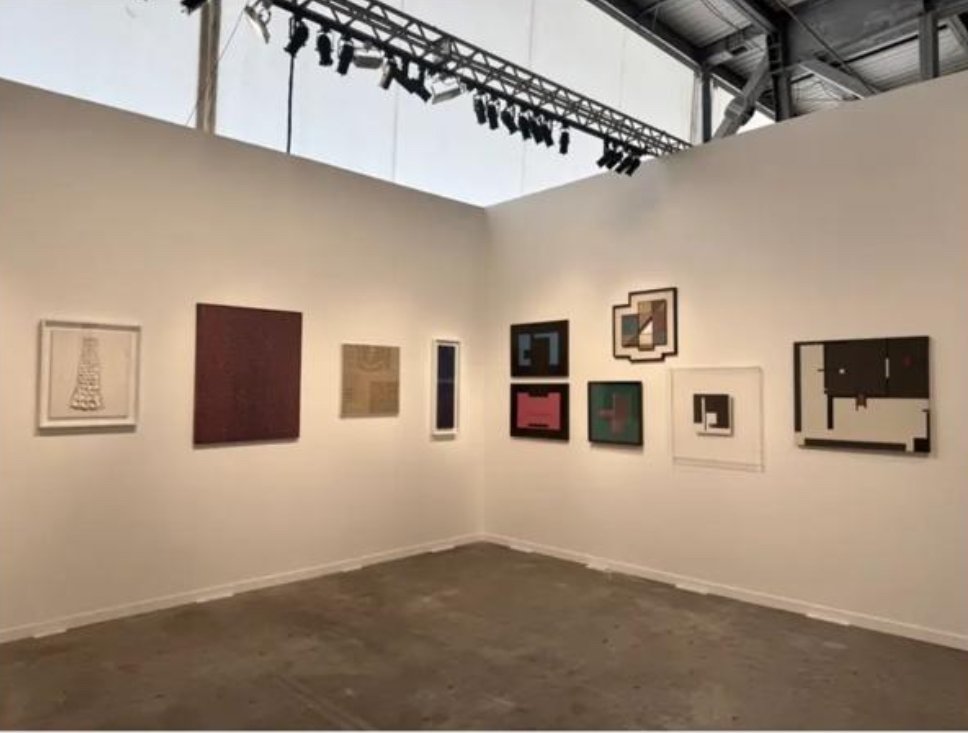
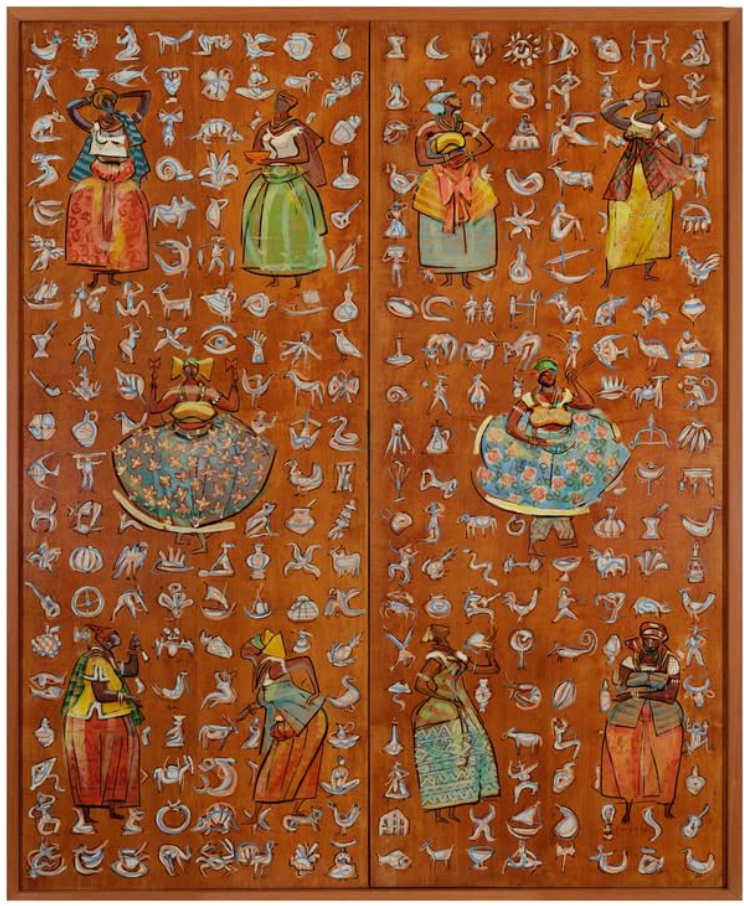
CARYBÉ
Orixás, 1956
Oil on wood
100 x 82 cm
Flexa
The gallery focused on generational dialogue, combining veterans like Adriana Varejão and Rubem Valentim with a rare piece by Di Cavalcanti. This strategy resulted in significant sales of works by Tomie Ohtake, Rubem Valentim, Beatriz Milhazes and Miriam Cahn, demonstrating that generational diversity is a recipe for success.
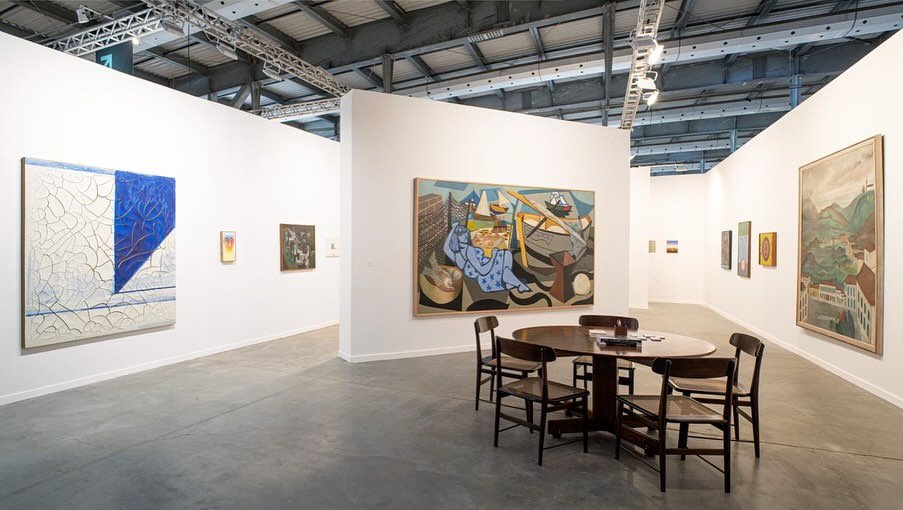
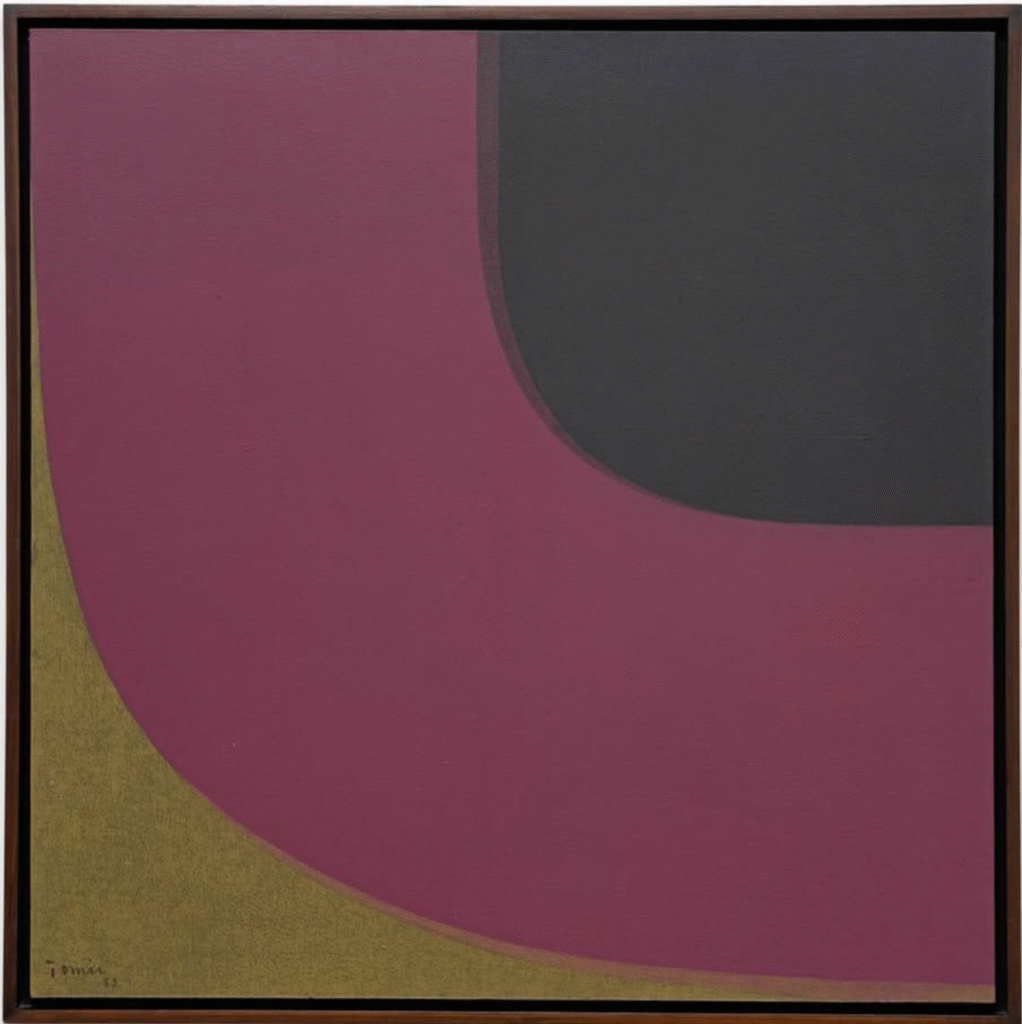
Paulo Kuczynski
The gallery focused on the high-quality secondary market, presenting a catalog ranging from Vicente do Rego Monteiro to Pablo Picasso. Among the confirmed results is the sale of a work by Cícero Dias. In addition, negotiations are underway for important masterpieces including a marble piece by Sérgio Camargo, who participated the Venice biennale in 2024.
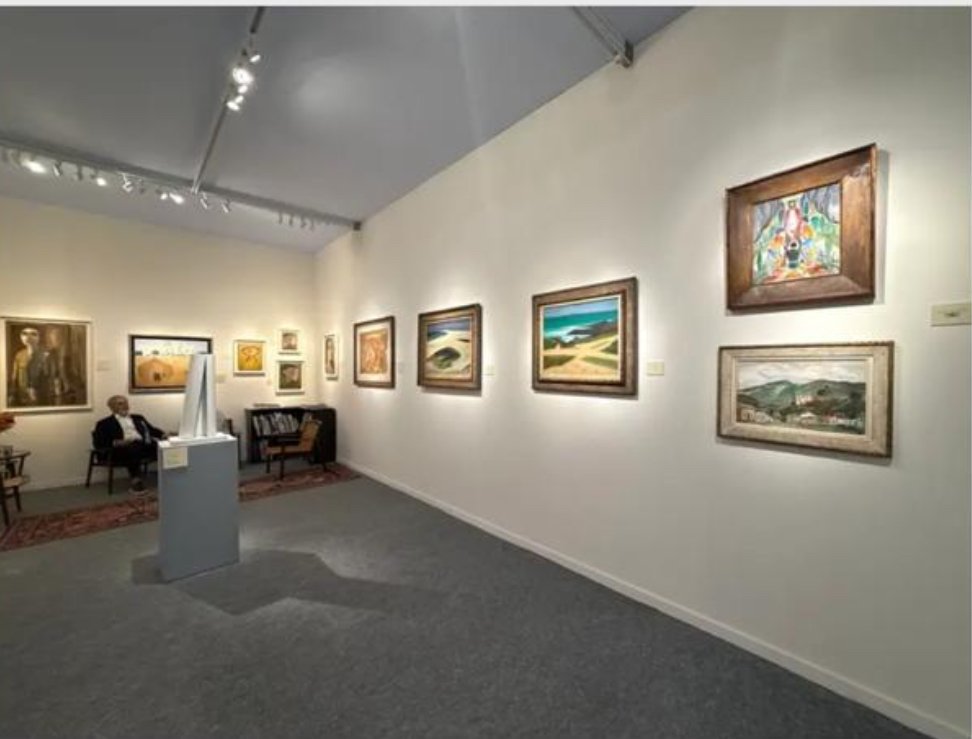
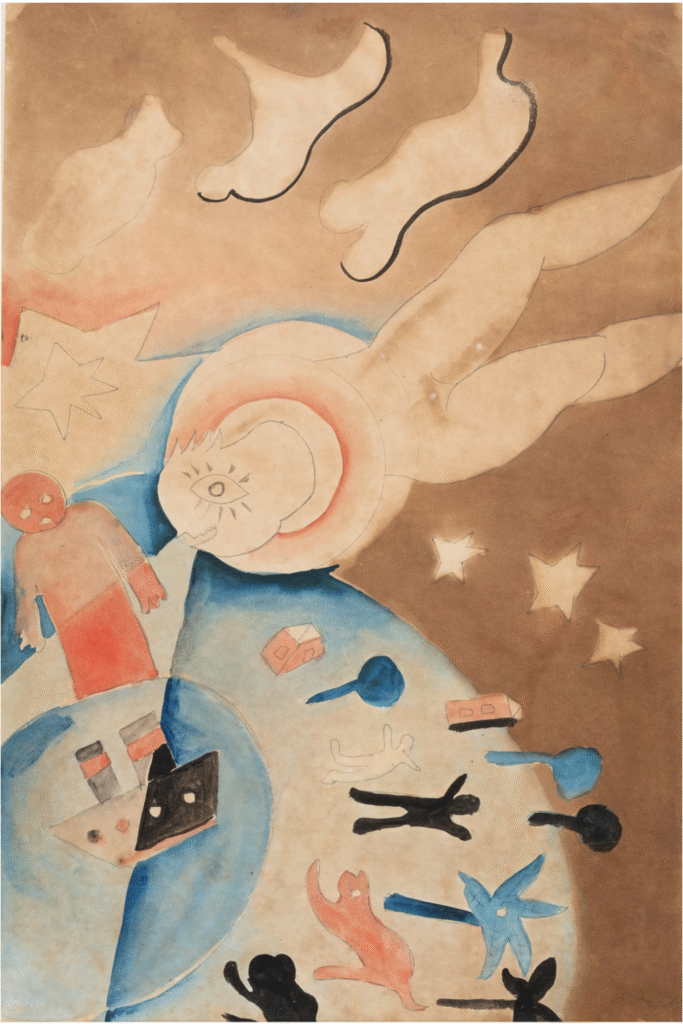
Cícero Dias
Paisagem modernista, 1928
Watercolor on paper
50 x 30 cm
Almeida & Dale
The gallery created a powerful encounter between established names and artists expanding international boundaries. Diego Rivera, Lygia Pape, and Mira Schendel shared space with Maxwell Alexandre and Tatiana Blass, composing a vibrant panorama where different generations engage in experimentation and visual poetry.
Almeida & Dale announced the sale of two gouaches by Alexander Calder, as well as works by Guga Szabzon, Paulo Pasta, Ione Saldanha, Tunga, Alex Cerveny and Alice Shintani. In total, the gallery sold more than 20 works during the fair.
Among the highlights is Maya Weishof, who sold a painting for R$85.000. She creates images using fragments, distortions, caricatures, and hybrid creatures, where body and landscape reveal themselves as interconnected substances. Her work moves beyond linear narratives, expanding figurative language into a multifaceted imaginary, and is held in prominent collections including the Pinacoteca de São Paulo, Museu Oscar Niemeyer (Brazil), and the Rennie Museum Collection (Canada).
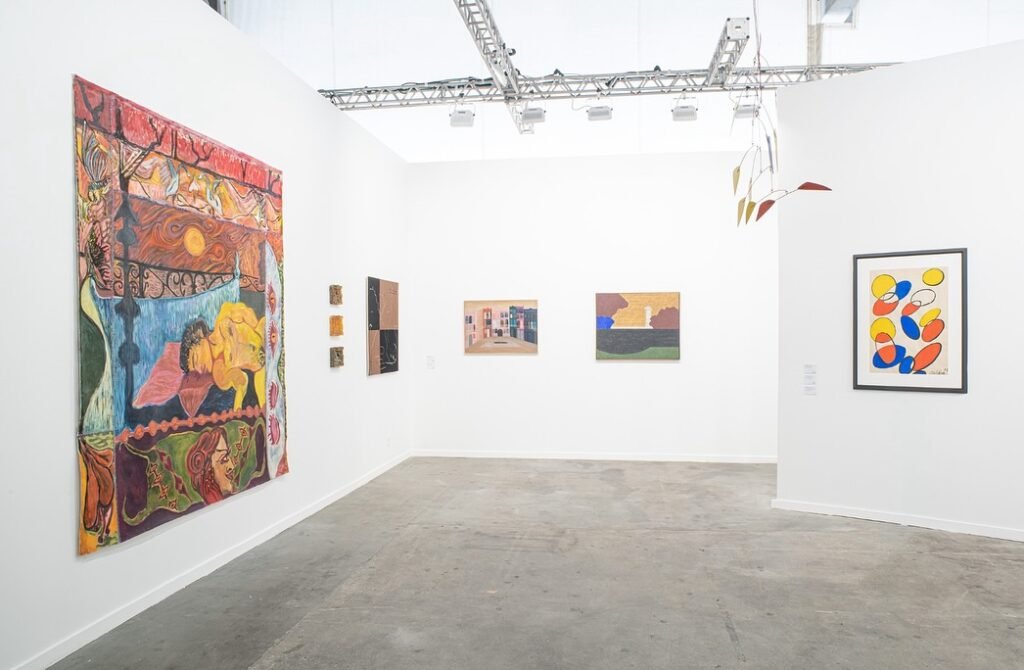
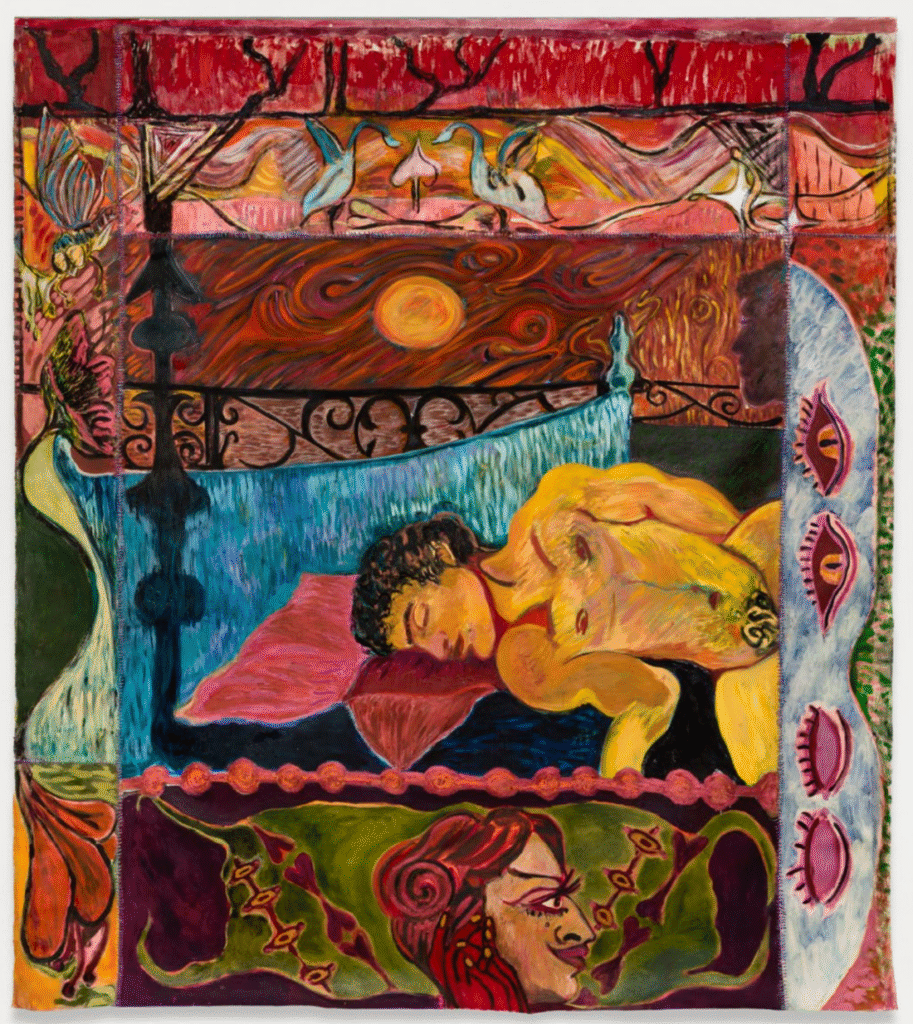
Maya Weishof
Sonho em três tempos, 2025
Oil, charcoal, and stitching on canvas
215 x 200 cm
Danielian
The gallery with two booth offered in the panorama sector a comprehensive view of the movements that shaped the history of Brazilian art. The selection brought together works by modern and contemporary artists, including Cândido Portinari, Emiliano Di Cavalcanti, Cruz Diez, Antonio Dias, Ernesto Neto, among others, resulting in a presentation that balanced historical depth with strong market resonance. The Gallery noticed several sucessfull sales including works by Ione Saldanha, Heitor dos Prazeres, and Bruno Giorgi.
The team just returned from last week’s Independence fair in New York, where they presented a solo show by Odoteres Ricardo de Ozias and sold four of his works.
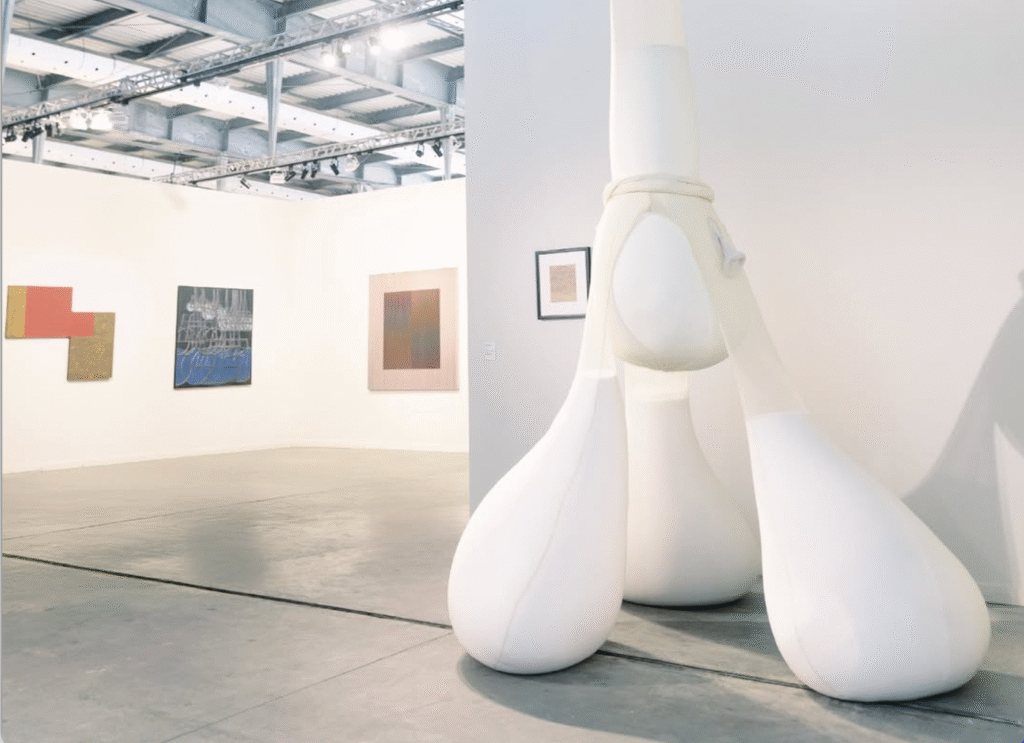
Simões de Assis
Among the highlights, Simão de Assis reported the sale of a major painting by Gonçalo Ivo. Looking ahead, the gallery will present an exhibition of Gonçalo Ivo’s historic works at Maison Gacha, Paris on October 23. The show will enter into dialogue with the African art collection of Ly and Frédérique Dumas, heirs of the Hermès family, creating a unique conversation between contemporary painting and African heritage.
In addition, a work by Ayrson Heráclito was acquired by a private collection in Belgium, and advanced discussions are underway for the placement of another piece in the United States. Overall, the fair proved highly productive, enabling the gallery to place several of its artists in significant collections.
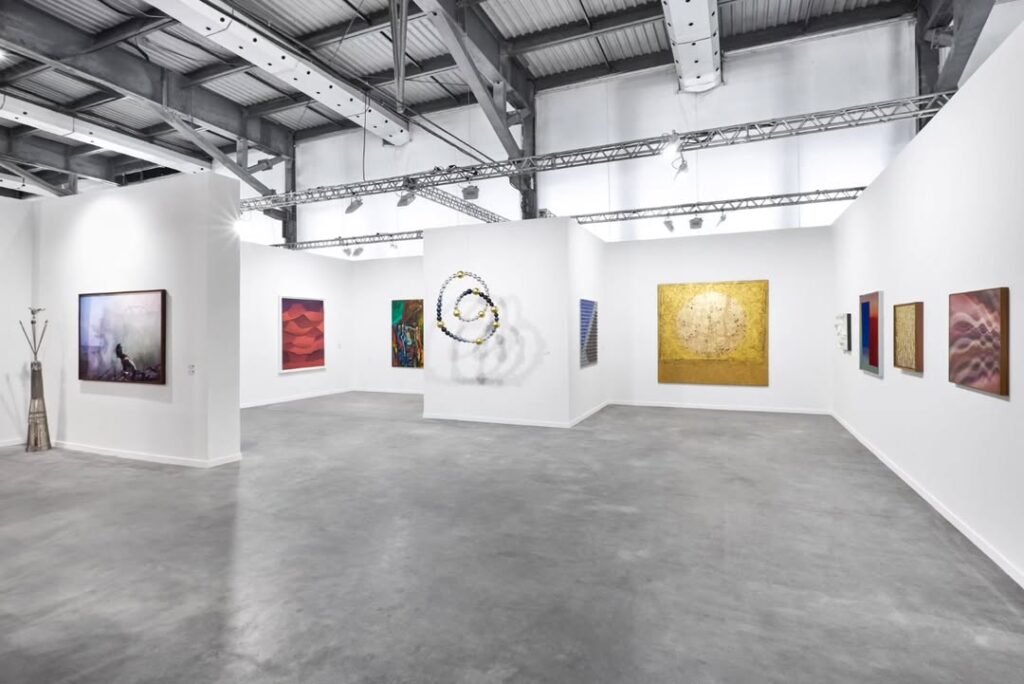
Pinakotheke Cultural
The gallery celebrated the plurality of languages and the richness of Brazilian artistic heritage through a selection of established artists. Mira Schendel, Manabu Mabe, Di Cavalcanti, Cândido Portinari, Cícero Dias, and Glauco Rodrigues formed a collection that showcases the best of national artistic production.
Among the sales, a work by Paulo Roberto Leal for R$300.000 and a piece by Glauco Rodrigues.

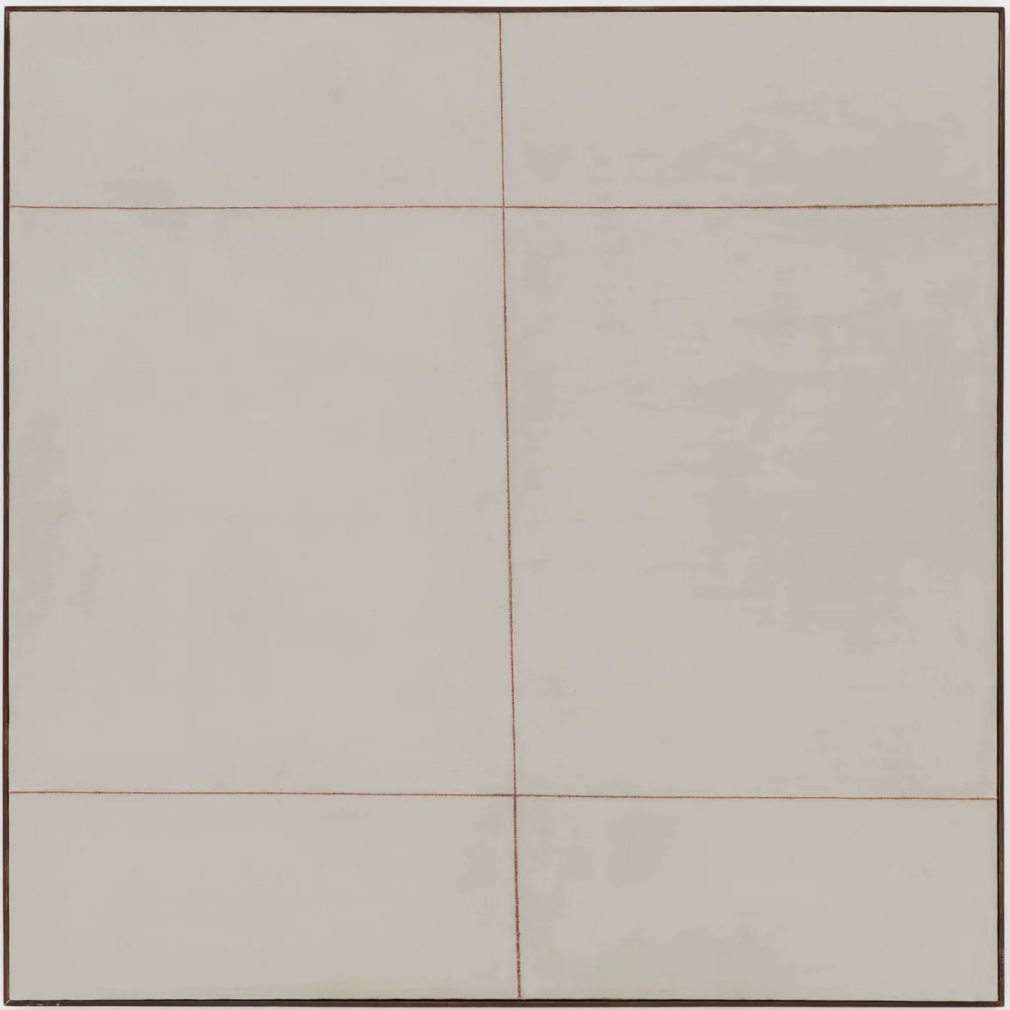
Paulo Roberto Leal
Untitled, 1974
Oil and stitching on canvas
100 x 100 cm
Raquel Arnaud
The gallery celebrated impressive numbers: with serveral of works sold, including pieces by Wolfram Ullrich, Marina Weffort, and Felipe Pantone. The outstanding result confirms the strength of its curation and the appeal of its program to collectors.
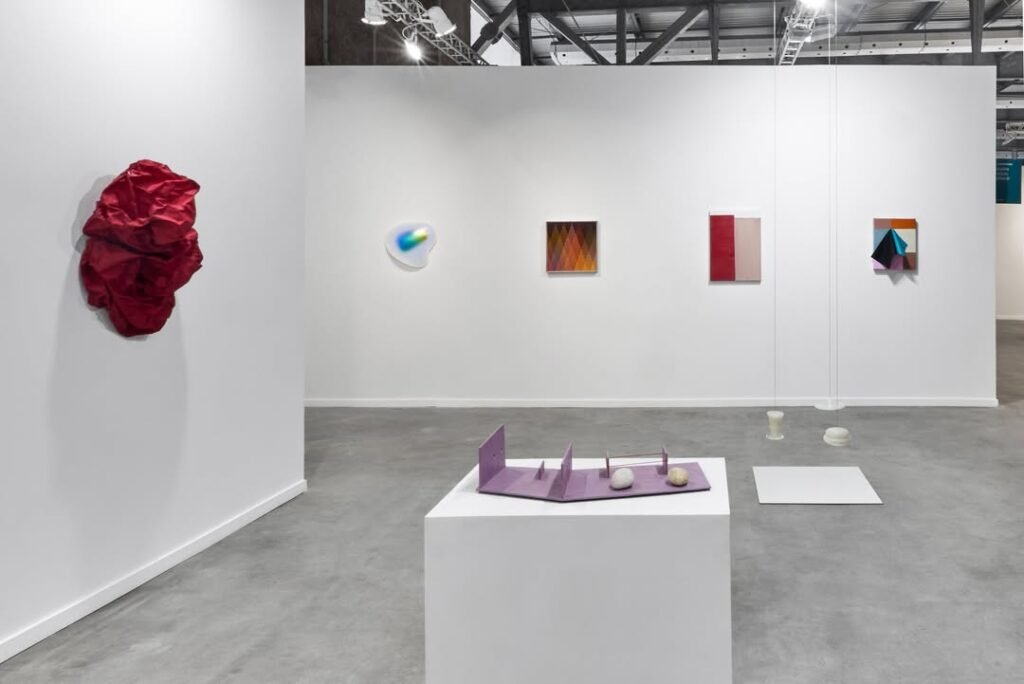
Galleria Estação
Santidio Pereira was presented with new gouaches created especially for the fair, which were sold to collectors, five in total, three going to Rio de Janeiro and two to Italy. His work is also currently on view in the solo exhibition Céu Aberto at Estação gallery in São Paulo.
A historic piece by Chico Tabibuia was sold to a collector of São Paulo, highlighting his singular wood production and its place between popular and contemporary Brazilian art.
The gallery also sold two flower vase paintings by Rafael Pereira to clients in Rio de Janeiro. Rafael recently returned from the Sertão Negro artistic residency, curated by Dalton Paula, and on September 7 participated in a talk at the 36th São Paulo Biennial also invited by the Sertão Negro project.
Additionally, a tapestry by Higo José, from Ceará, was sold, showcasing his research on prehistoric periods in Brazil. The gallery noted an encouraging movement in Rio de Janeiro: collectors are buying with energy, signaling that the local art scene continues to grow and renew year after year.
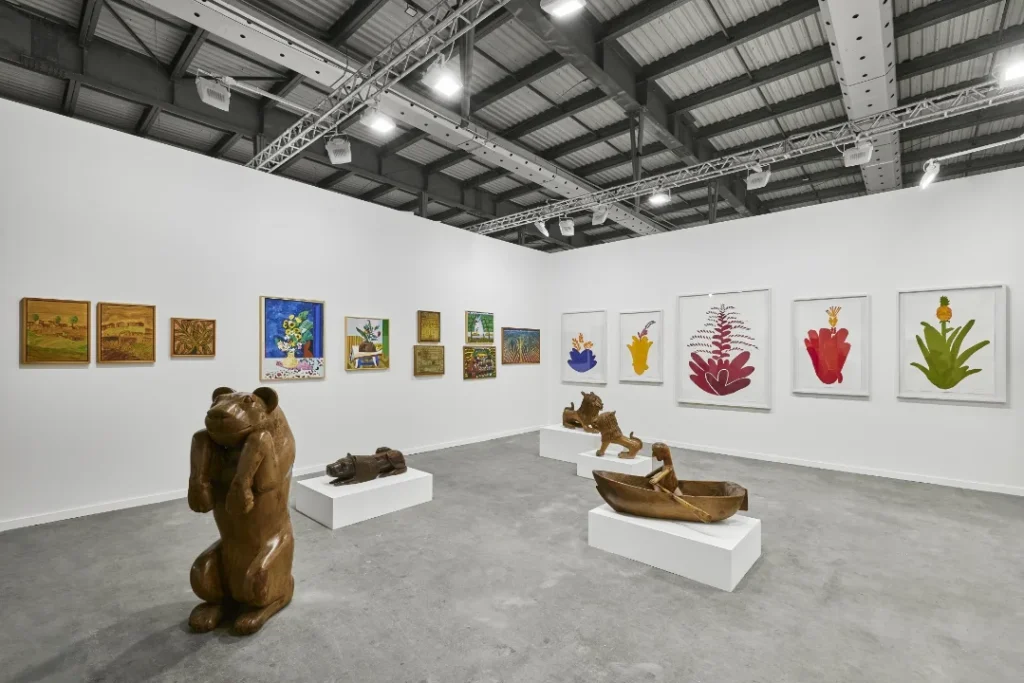
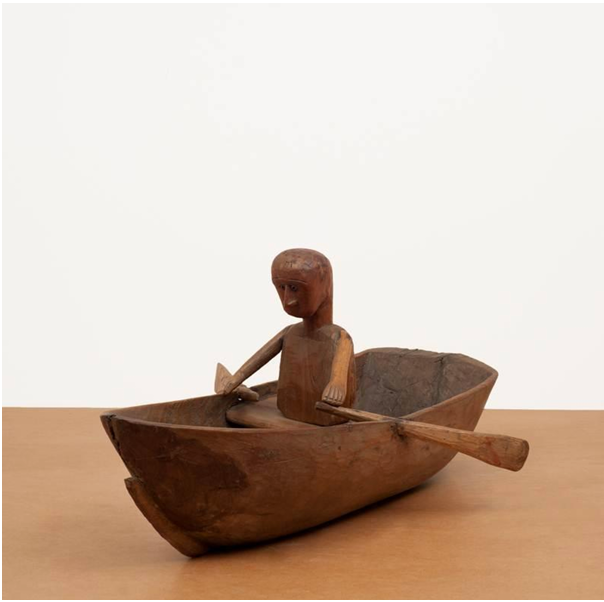
Chico Tabibuia
Barco Fantasma, 1980/1981
Wood Sculpture
55 x 37 x 110 cm
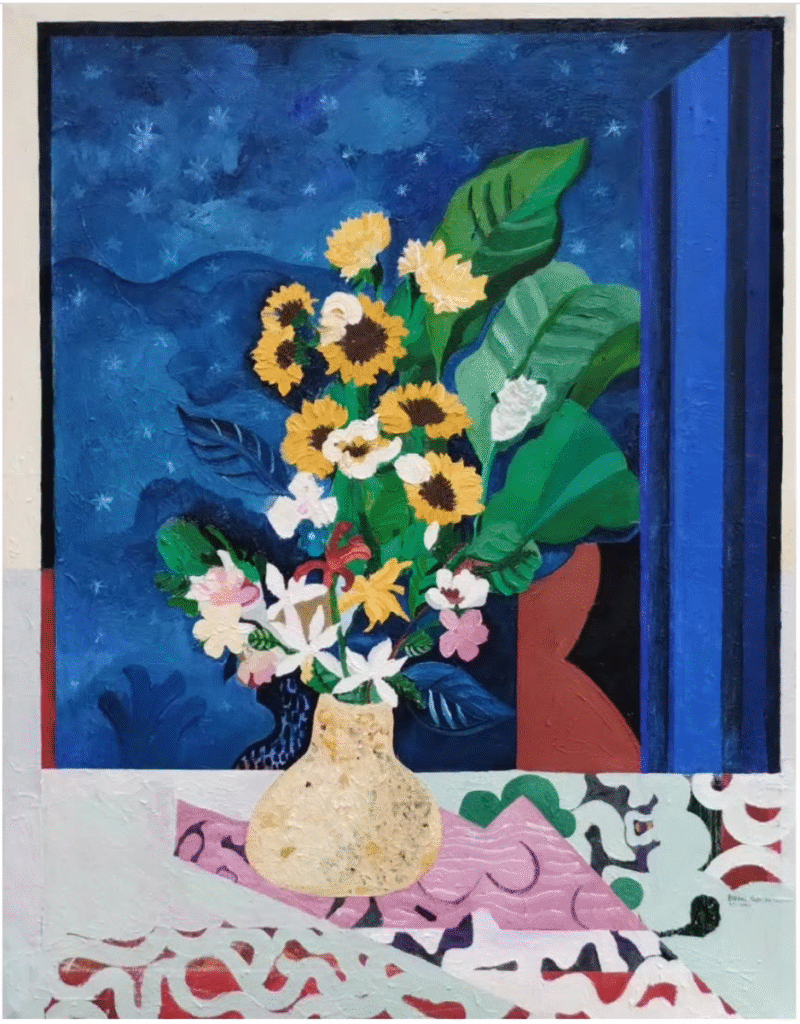
Rafael Pereira
Cabaça com flores, 2024
Oil on canvas
Fólio
The gallery demonstrated how a curatorial focus can enhance collections. Paulo Rosenbaum and Rogério Pires created a fascinating temporal dialogue by bringing together works produced between 1920 and 1980, focusing on works on paper. Names such as Antonio Dias, Ismael Nery, and Mira Schendel shared space with international masters like Pablo Picasso and Sonia Delaunay. The sale of a work by Judith Lauand crowned the project, confirming that historical contextualization adds commercial value.
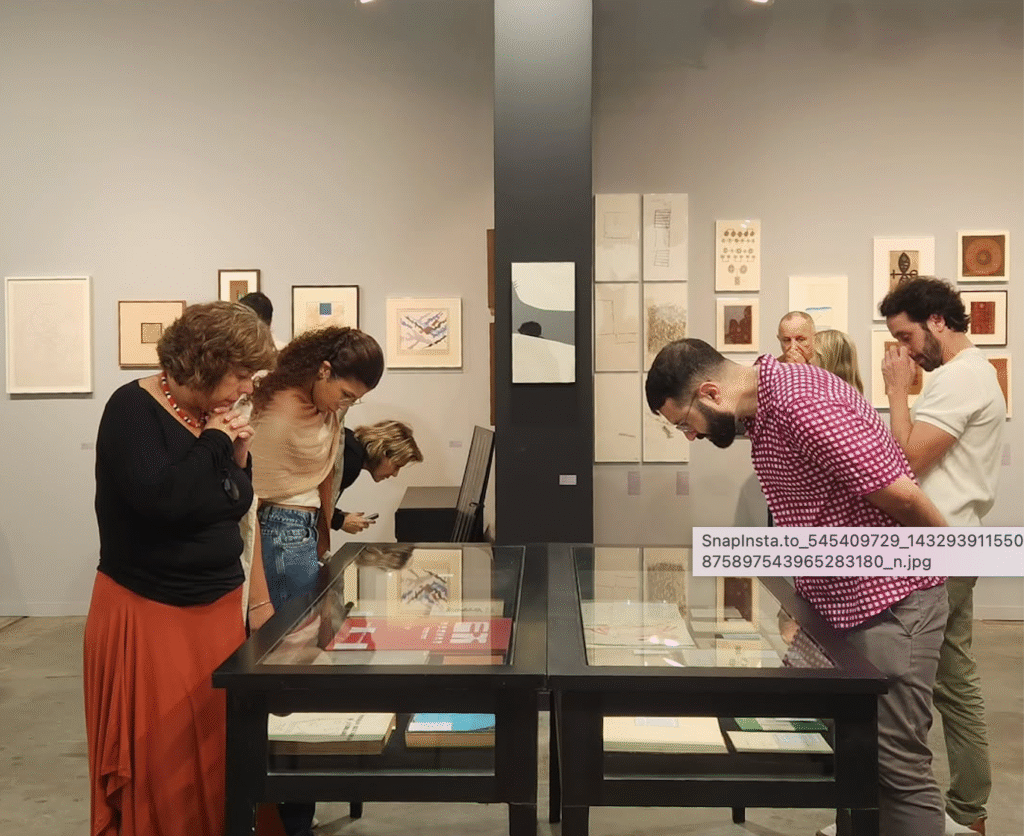
Contemporary Galleries
Nara Roesler
Nara Roesler participates in the fair with a multifaceted program, featuring its main booth, the Books editorial section, which includes new publications by Alberto Pitta, a participant in this year’s São Paulo Biennial, and Carlito Carvalhosa, and José Dávila’s 2023 installation Fundamental Concern in the Sculpture Garden.
The gallery reported the sale of 15 artworks on the first day of the fair, from artists such as Abraham Palatnik, Júlio Le Parc, Vik Muniz, Daniel Senise, Arthur Lescher, Carlito Carvalhosa, André Griffo and José Patrício.
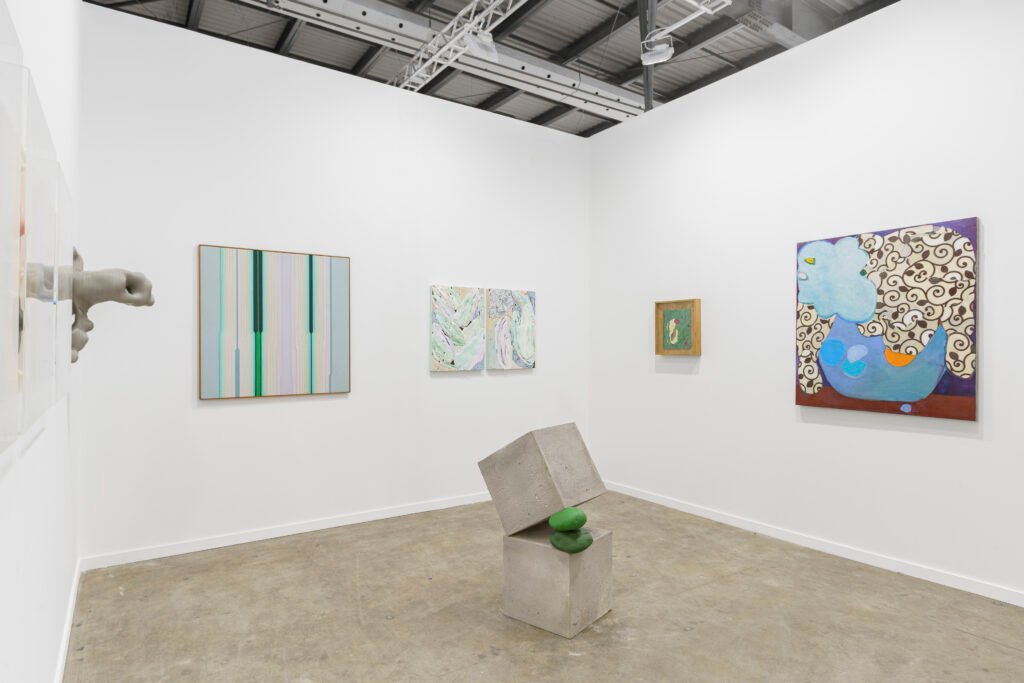
Fortes D'Aloia & Gabriel
The gallery showcased works by artists participating in the São Paulo Biennial, Antonio Társis, Márcia Falcão, and Pélagie Gbaguidi, as well as by artists with exhibitions at its São Paulo space, including Mauro Restiffe and Valesca Soares, and Wanda Pimentel, who exhibited at Carpintaria in Rio de Janeiro.
Sales were predominantly made to Brazilian collectors, featuring works by Ernesto Neto, Luiz Zerbini, Rodrigo Cass, Anderson Borba, Leda Catunda, and others, with prices ranging from $5.000 to $240.000.
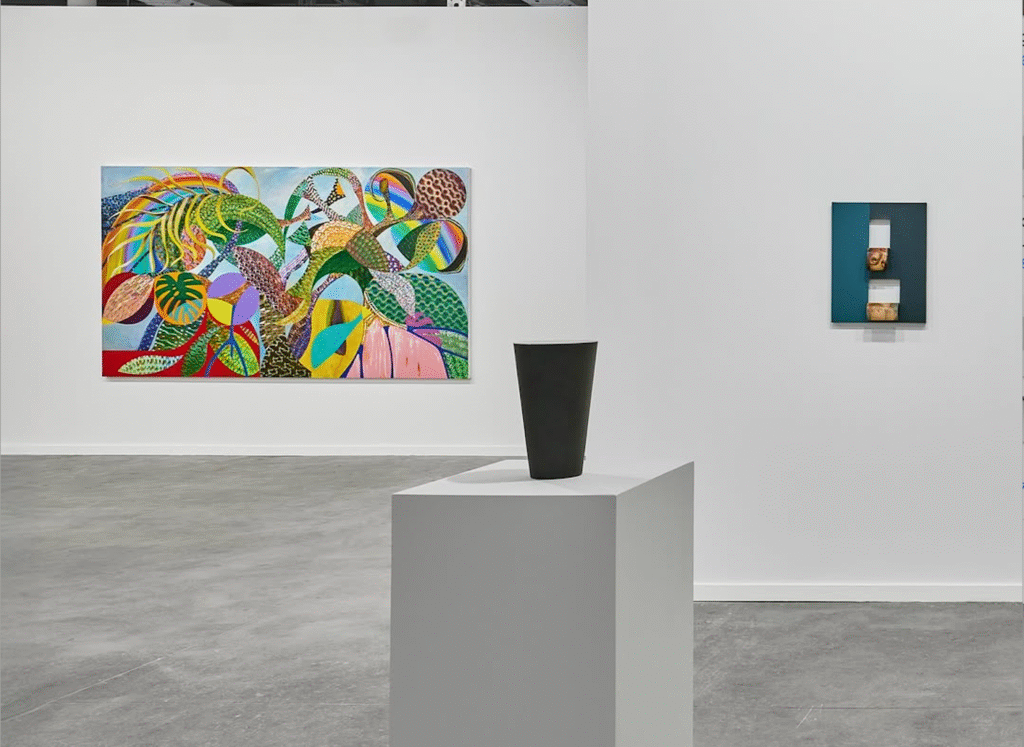
A Gentil Carioca
The gallery presented a curated exhibition spanning generations, featuring artists from Denilson Baniwa to Laura Lima. This included new paintings by Mariana Rocha, whose solo show Desde sempre o mar at A Gentil Carioca in Rio de Janeiro (May 24 – August 9, 2025) sold out, reflecting her unique poetics and ability to reveal diverse artistic perspectives.
The gallery also reported strong sales from Agrade Camíz, whose works were acquired by both private and institutional collectors, including members of the Tate board, a representative from MOCA, and a private museum-owning couple in Munich. Camíz recently participated in the group exhibition Horizontes | Peintures brésiliennes at the Grand Palais in Paris, part of Saison Brésil–France 2025, presenting two new polyptychs, Safira and Grains de beauté perpétuels. The exhibition ran alongside a major show by Ernesto Neto, highlighting the prominence of Brazilian contemporary art at the venue.
The gallery also celebrates the acquisition of an oil on canvas by Miguel Afa for the collection of the Pinacoteca de São Paulo.
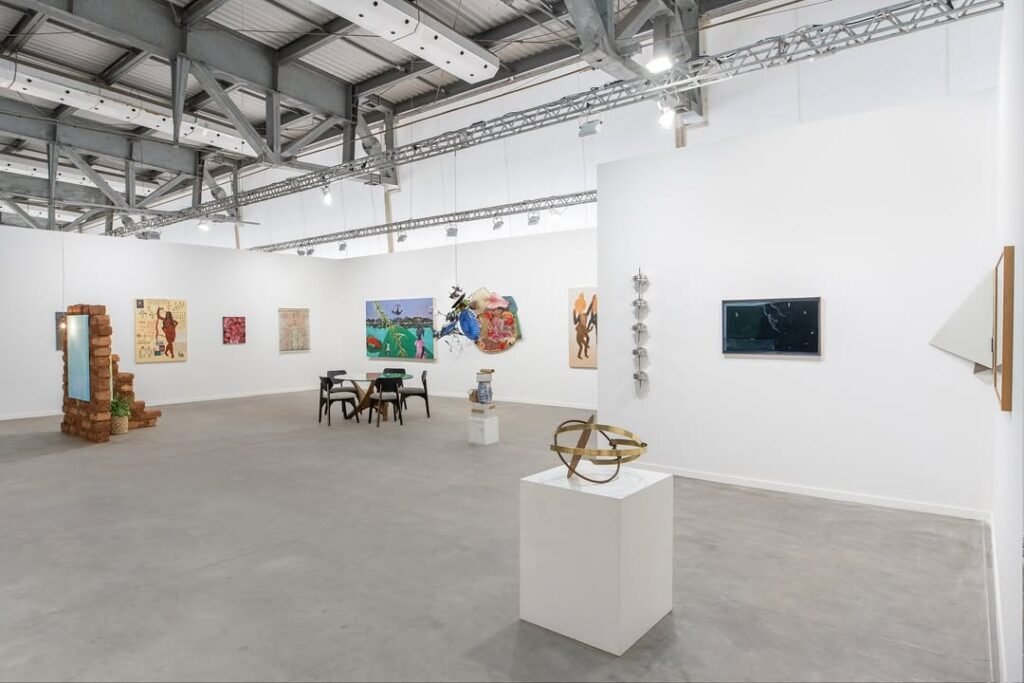
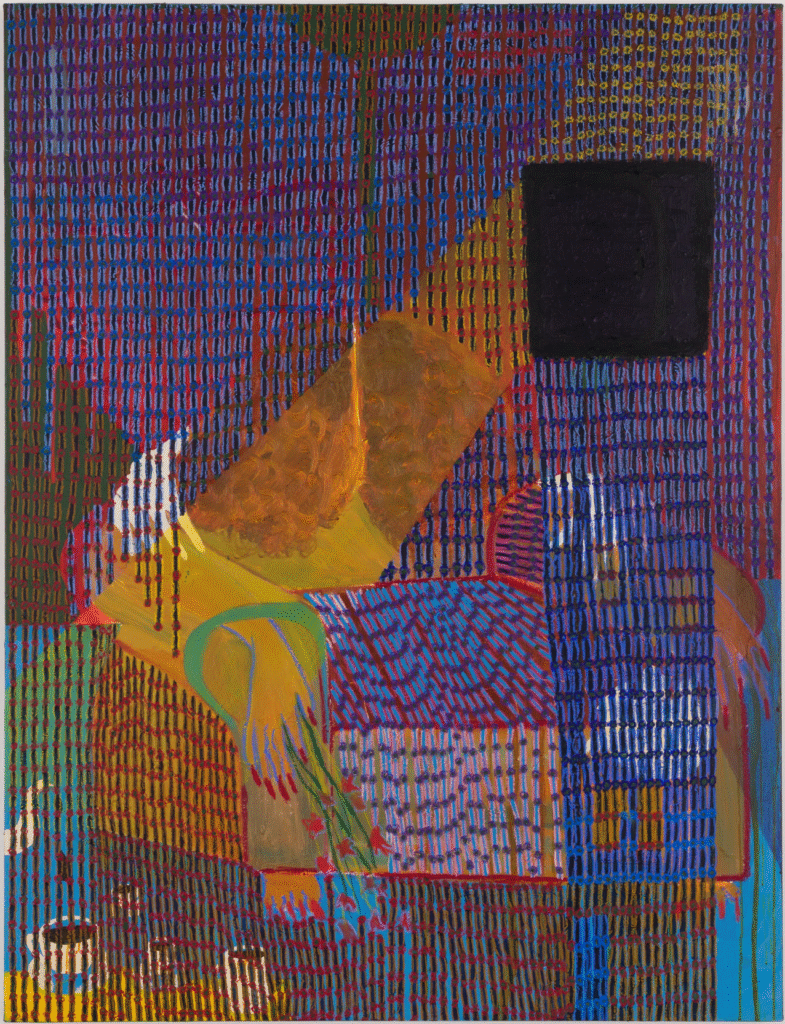
Agrade Camíz
Zona de interesse, 2025
Acrylic, oil pastel and oil stick on canvas
170 x 130 x 3 cm

Continua
The gallery maintained its strong performance with the sale of a golden installation miroir by Ana Maria Tavares and a wall sculpture by Loris Cecchini. Additionally, an iconic scultpure by Anish Kapoor is currently under negotiation.
A standout of the fair was the young Brazilian artist Yhuri Cruz, 24, who develops his practice through scenographic and installation-based propositions that explore historical archives and the fabulations of the Black diaspora in Brazil and beyond. Working expansively with sculpture, drawing, and film, he is particularly known for his long-running performance series, Cenas Pretofágicas (The Emancipation Plays). His recent solo show, Revenguê: Uma exposição-cena, at the Museu de Arte do Rio, along with works now in the Smithsonian Museum, Pinacoteca de São Paulo, and the Havana Biennial, has placed him on the Guggenheim’s radar, signaling his rapid rise on the international stage. Cruz has also produced video works for Oi Futuro and was recently approved for an exhibition at the Museum of Contemporary Art in San Diego, cementing his growing global presence.
The gallery also attracted significant attention from international institutions, with curators from PAC (Patronato Arte Contemporánea, Mexico) and MOCA Los Angeles visiting its booth during the fair.

Mendes Wood DM
The gallery presented an ambitious program, showcasing the multiple facets of the contemporary art market. Artist Josi stood out with a series of works that was highly acclaimed at the fair, earning her the Desejo seal from the MAR (Museu de Arte do Rio) collection. Attention was also drawn to Solange Pessoa’s bronzes, previously exhibited in Glasgow, and Maria Auxiliadora’s works, which revisit and celebrate Afro-Brazilian culture. The booth also featured the installation Law of Intervals and Voids, 2024 by Kishio Suga, highlighting how established galleries balance tradition and avant-garde.

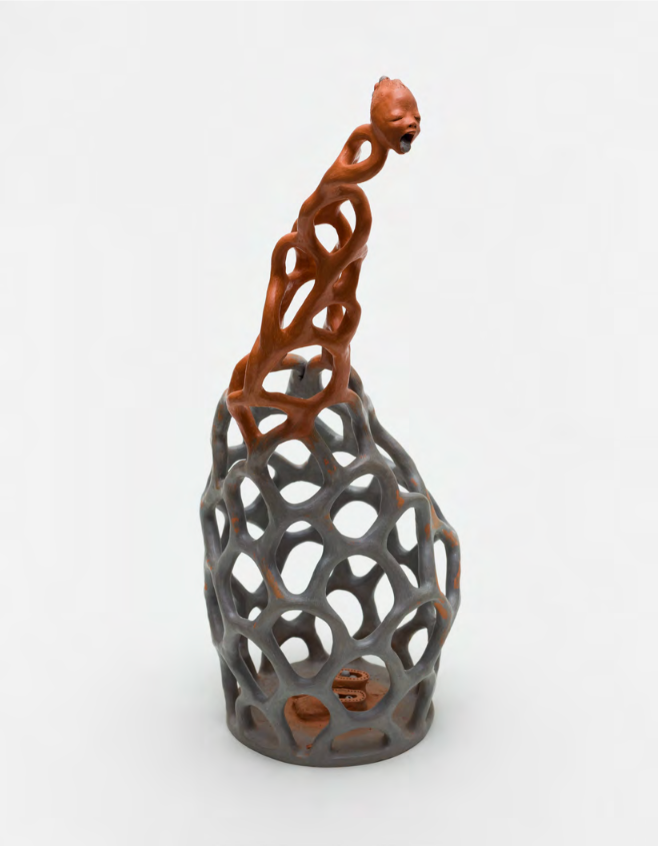
Josi
Untitled, 2022
Ceramics
45 x 17 x 17 cm
Athena
Athena Gallery recorded robust sales during the fair, including works by Ayla Tavares, Renata Leoa, Edu de Barros, and Vanderlei Lopes, acquired by both Carioca collectors and a Northeast-based foundation. A work by Eduardo Baltazar was sold to a French collector.
A highlight was Ayla Tavares, whose ceramic works, engaging in a poetic dialogue with archaeological practice, sold out. Since her solo presentation at Frieze in October 2024, Tavares has garnered strong support from major Brazilian and European collectors, including members of the Latin American acquisitions committee at the Tate. Her first solo show in Paris is planned for October 2025 at Hatch Gallery during Art Basel, presented in dialogue with the historic Brazilian artist Celeida Tostes, with the support of collector Simone Coscarelli Parma.
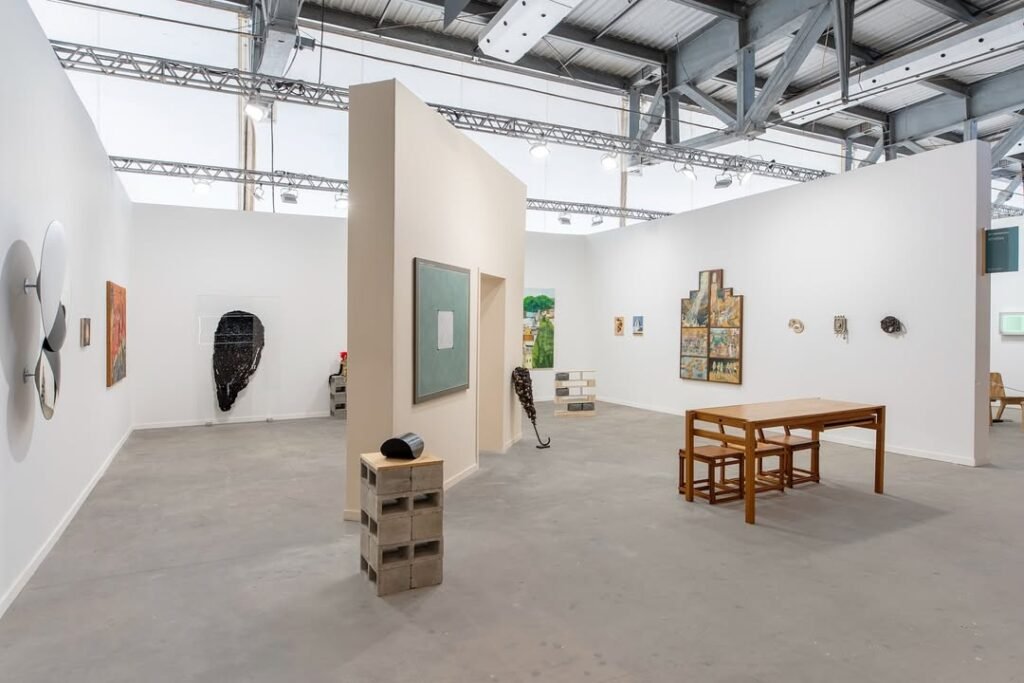
Galatea
The gallery proposed a fascinating intergenerational dialogue, ranging from emerging talents to key figures in modern and contemporary art. Sales highlights included a painting by Ione Saldanha from the Cidades series (in the range of R$300.00), a 1958 oil on canvas by Max Bill, and a group of eight works by Luiz Zerbini from 2002. Additional notable placements featured works by Mucki. On the contemporary side, the gallery sold three works by Dani Cavalier, three by Gabriel Branco, and two by Arthur Palhano, underscoring the strength of its program across generations.
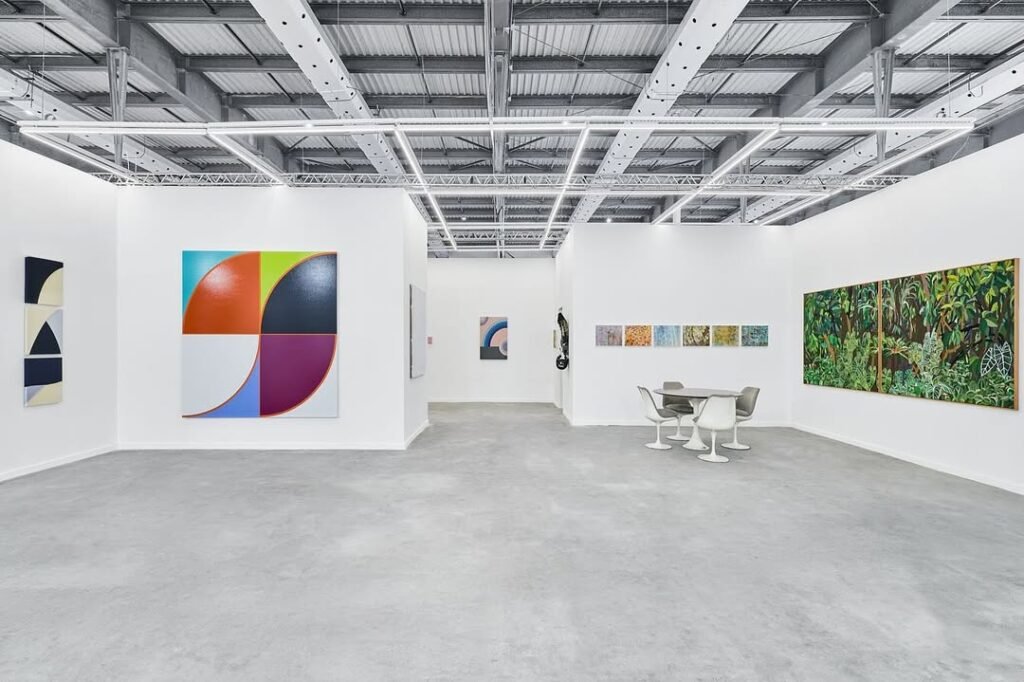
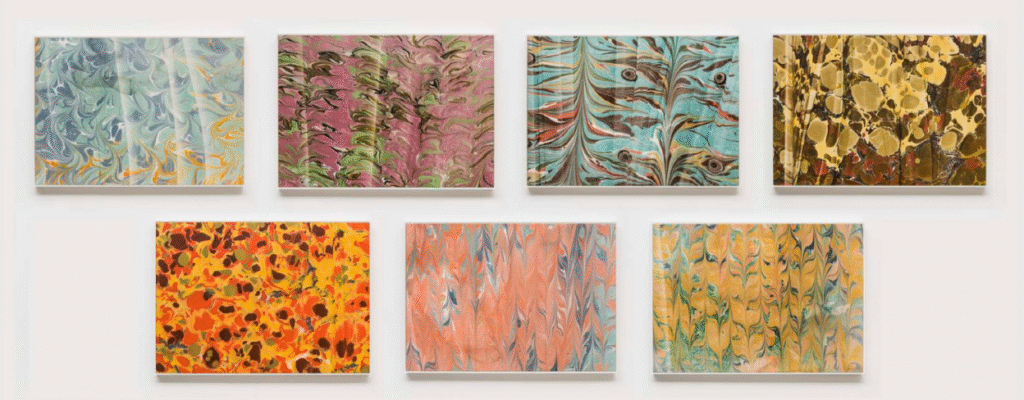
Luiz Zerbini
Untitled, 2022
Watercolor on cardboard, signed on the reverse
35 x 50 cm (each)
Marco Zero
Marco Zero gallery brought a younger roster to ArtRio, reflecting our strategy to invest in the city with a more accessible budget and emerging artists. The gallery highlighted Juliana Lapa, who sold all of her works, Marcela Dias, a recent addition to the gallery, who also sold her entire selection, and the young artist Chacha Barja, who sold a significant number of his pieces. In the secondary market, Francisco Brennand also saw success, with two of his works sold at the booth. Overall, sales ranged between R$15.000 and R$40.000.
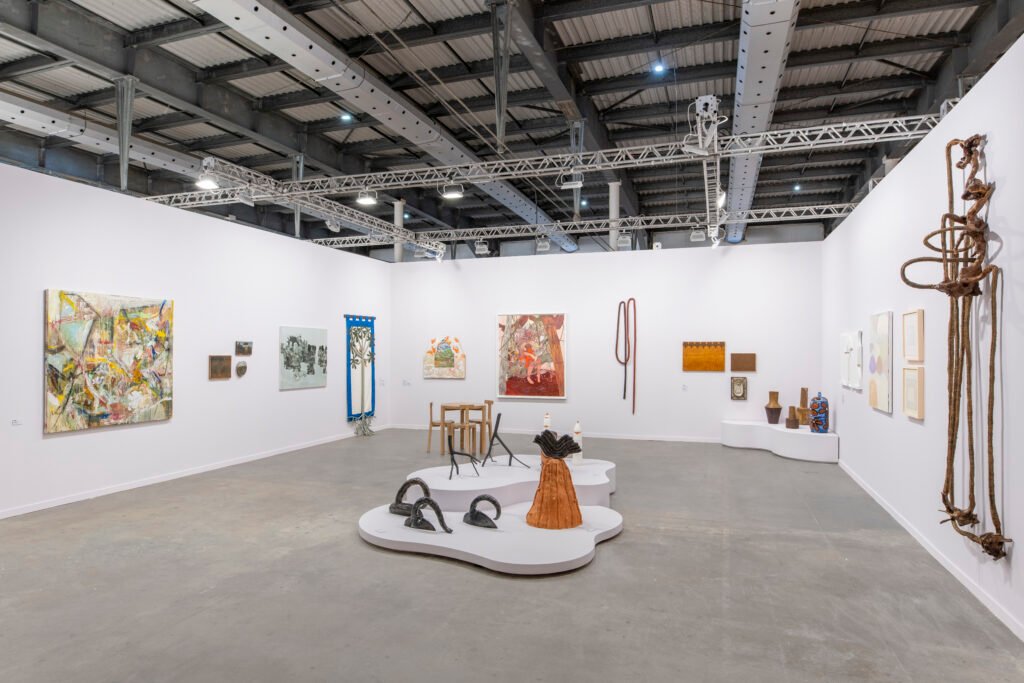
Casa Triângulo
The gallery reported notable sales of established artists such as Sandra Cinto sold for $45.000, Zé Tepedino, and Assume Vivid Astro Focus. They were proud to announce the new representation of Rafael Chaves, a young, self-taught artist from the Caatinga region of Paraíba, Brazil, whose multidisciplinary practice unfolds in a surrealist universe, blending imaginative and poetic forms. Chaves previously participated in the 2nd Jingdezhen International Ceramics Biennale in China and is currently developing a new ceramics project for the gallery, generating great anticipation for the evolution of her practice.

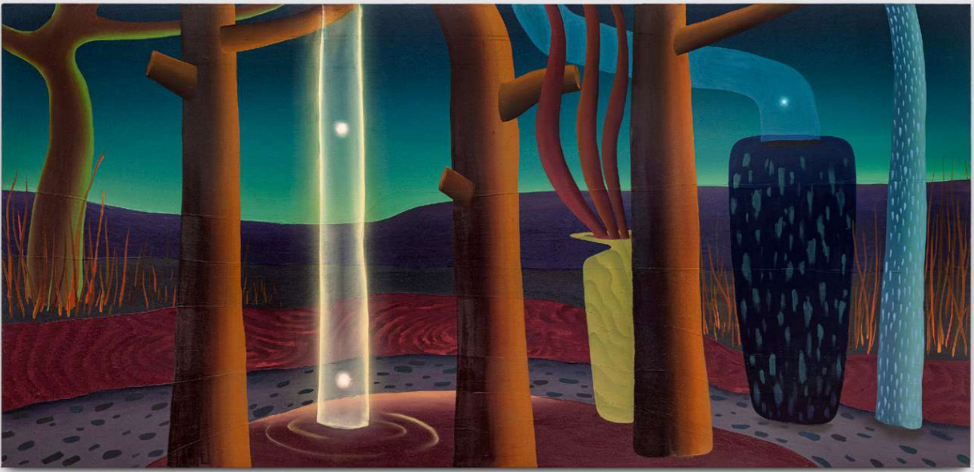
Rafael Chavez
Presença, 2025
Oil on canvas
80 x 170 cm
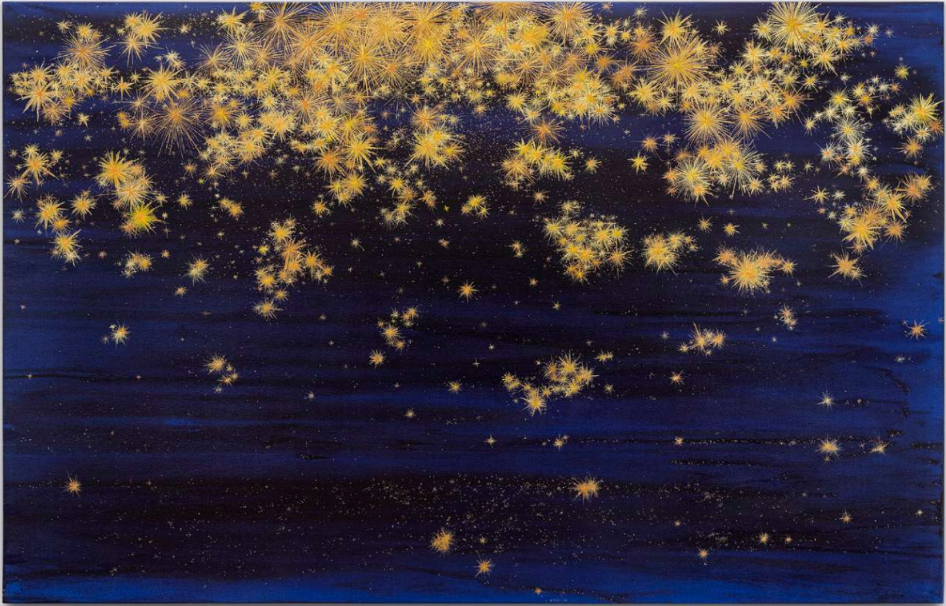
Sandra Cinto
Noite de São João, 2024
Acrylic on canvas
70 x 110 cm
Portas Vilaseca
The gallery recorded sales of works by Mai-Britt Wolthers, Iris Helena, Pedro Campanha. Mano Penalva and Nadia Taquary works acquired by collectors from Rio de Janeiro, São Paulo, and an international buyer.
An artist to watch, Nádia Taquary is already represented in international collections and celebrated for her work exploring Afro-Brazilian sacred traditions and Black female empowerment. Her solo exhibition Ònà Irin: Caminho de Ferro at MAR highlighted her distinctive approach to sculpture and installation. In 2024, she participated in the 24th Biennale of Sydney (Ten Thousand Suns), followed in 2025 by the group exhibition Musafiri at Berlin’s Haus der Kulturen der Welt. Her installation Tree of Ancestors is currently featured in the 36th São Paulo Biennial, and she will present Cosmogonias Brasileiras at Galerie Natalie Seroussi in Paris on October 4, 2025, coinciding with Art Basel’s VIP program.
In Parallel, the gallery opened a solo show by Ayrson Heráclito, an artist to follow closely, whose practice engages deeply with Afro-Brazilian Symbols of Orixas and performances. Heráclito is set to present a significant upcoming institutional event on the international stage.
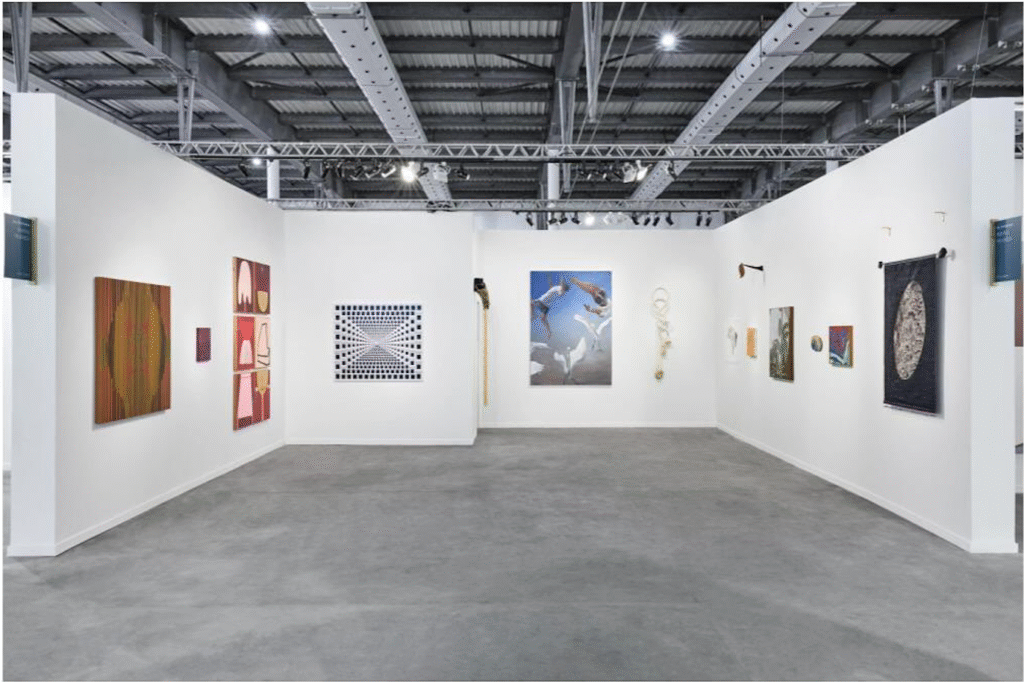
Verve
Verve described its participation at ArtRio as highly positive, noting the strong attendance and dynamic presence of collectors throughout the fair. The gallery emphasized that the overall atmosphere among exhibitors was one of optimism, with consistent sales reported across different booths. The gallery sold out its selection of works by Lucas Rubly, priced between R$6.000 and R$23.000.

Inox + Radiante
The galleries, sharing a joint booth, quickly sold both works by Juanito Conte, an Argentine artist known for his abstract paintings, signaling growing interest in his production. Additionally, a site-specific installation by Jeferson Medeiros is currently under negotiation for a future acquisition by a major criminal law firm foundation in São Paulo, highlighting the gallery’s engagement with institutional and corporate collectors.
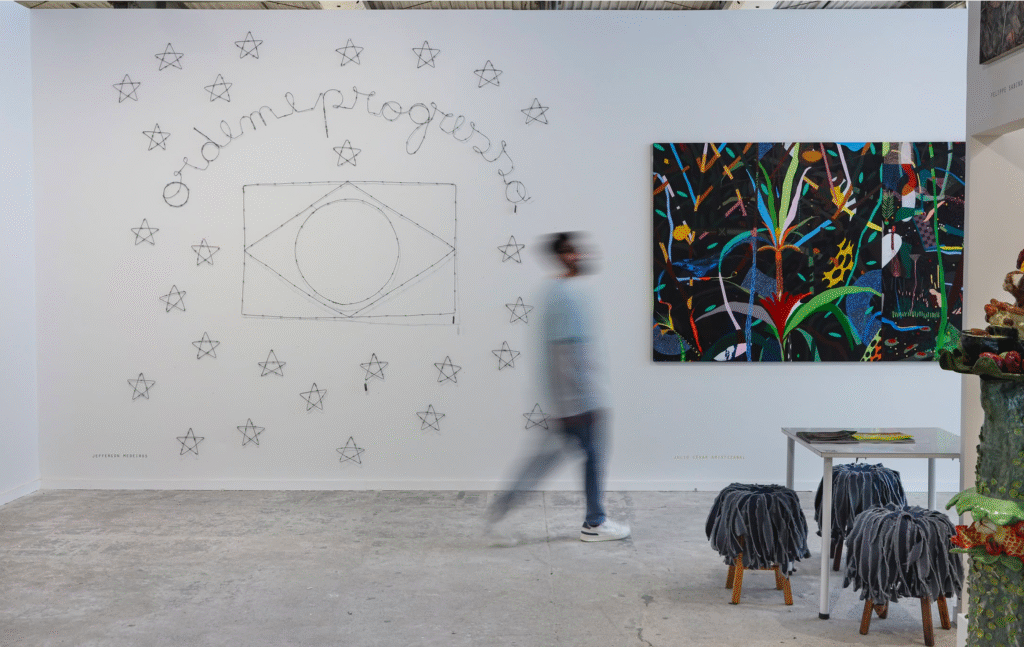
Movimento
The gallery recorded numerous sales during the fair. A monumental painting by Kaláb sold at the opening for €17.000, alongside three works by Viviane Teixeira, for R$ 50.000 each. Teixeira’s current exhibition, Entre Penas e Plumas, showcases dense, almost sculptural paintings that envelop the viewer in their material presence.
Additionally, a work from Toz’s new phase sold for R$60.000, found a collector, as did a piece by Mateu Velasco, reflecting strong interest in the gallery’s dynamic roster of contemporary artists.
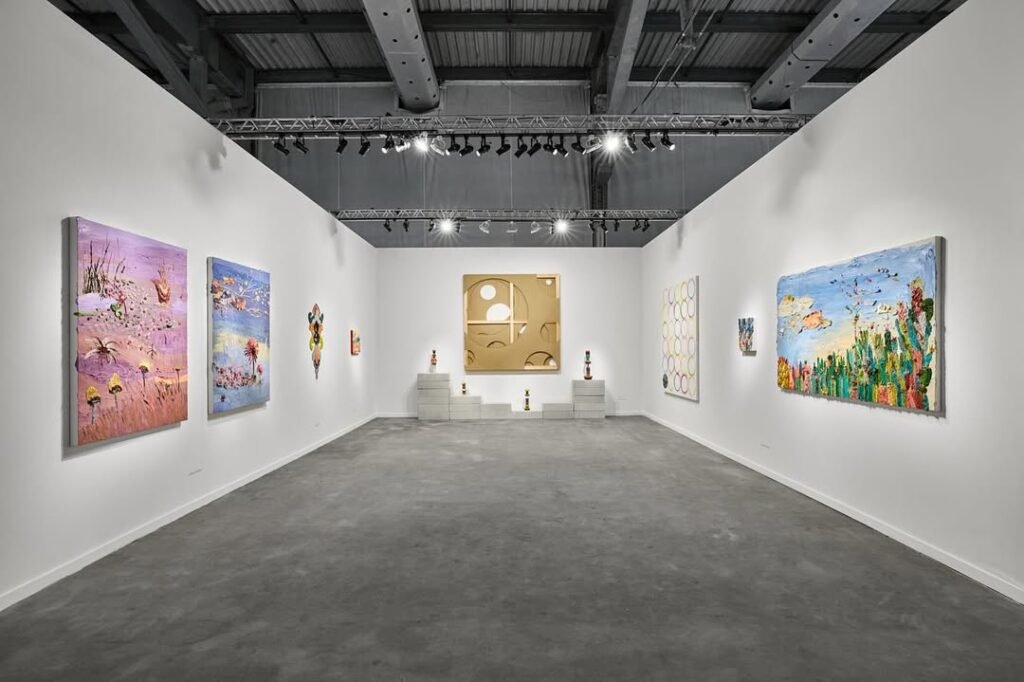
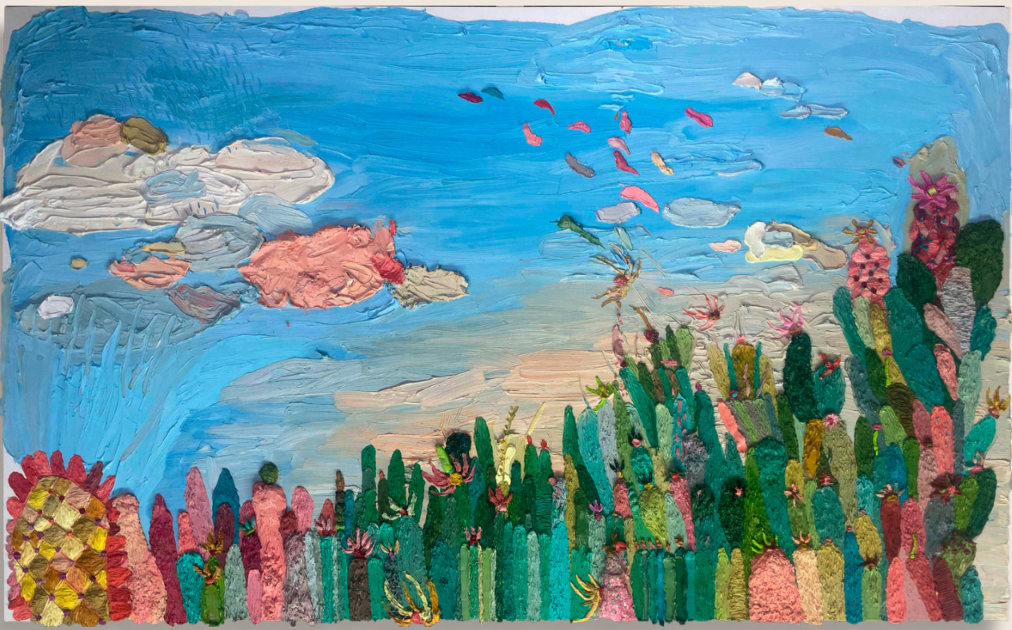
Viviane Teixeira
Flowers’s Love, 2025
Oil on canvas
110 x 180 cm
Luis Maluf
Luis Maluf presented a diverse selection of contemporary artists, emphasizing both historical engagement and experimental practice. Works by Delson Ushoa explored the Tropicália movement in his early career while producing textiles and other works since the 1980s, and Fernanda Pompeyer, known for her distinctive ceramic pieces, were sold during the fair.
The gallery also reported sales of works by Shizue Sakamoto, Guilherme Santos, Antônio Bokel, and Bu’u Kennedy, highlighting the strong market response to both emerging and mid-career talent. Visual documentation of selected works is being sourced to accompany the sales highlights.
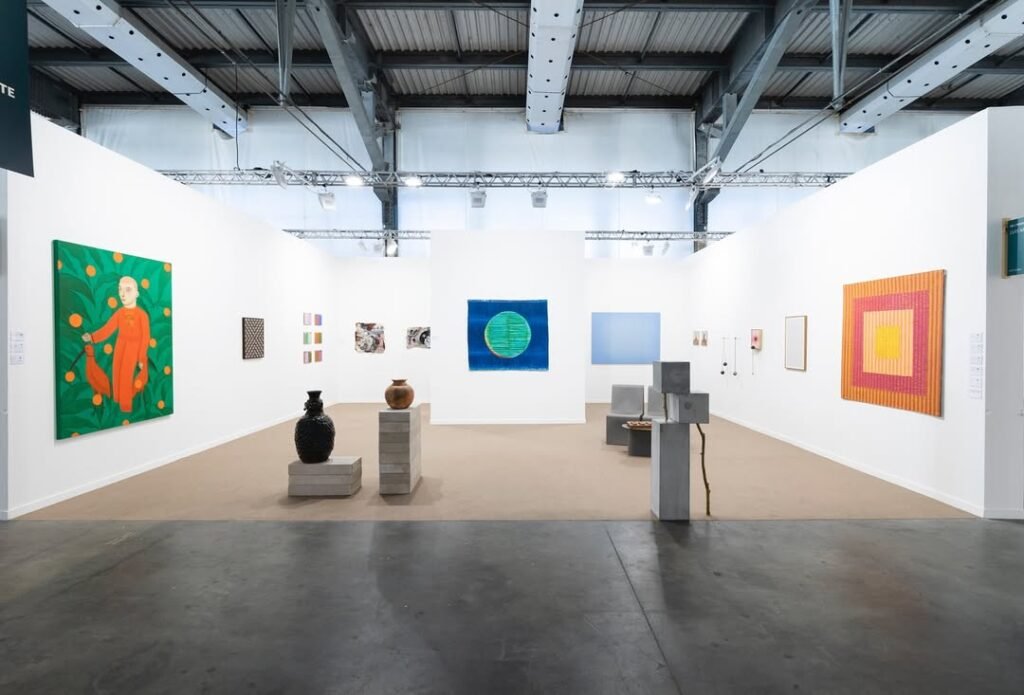
Mercedes Viegas
At the Mercedes Viegas gallery, Nathan, featured in a solo exhibition at the gallery, was highlighted by Vogue as one of the seven best new artists at ArtRio. Jacqueline Belotti was the first work sold at the booth, while emerging artists Cela Luz and Patricia Chueke drew significant attention. Works by Anna Maria Maiolino and Carlos Vergara were highly sought after but remain available. Daniel Feingold attracted hundreds of visitors with his large three-meter black-and-white painting.
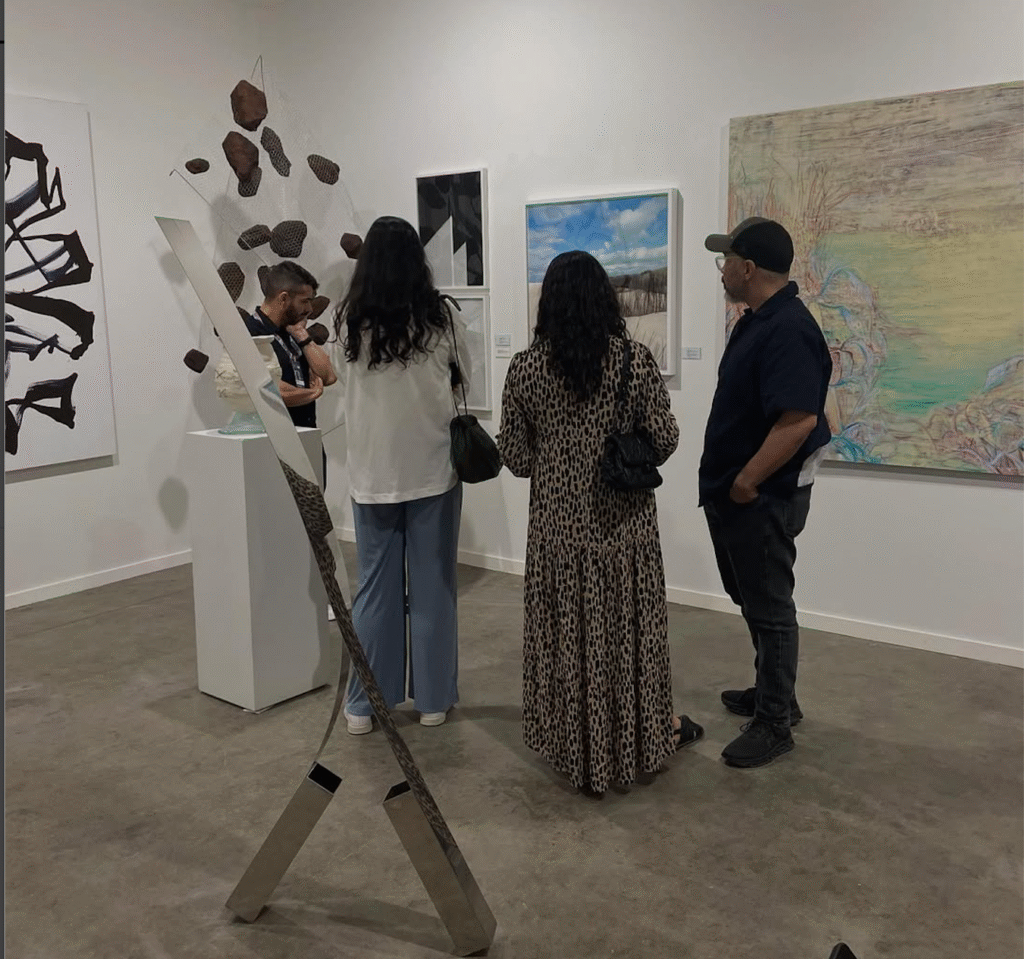
SOLO
Anita Schwartz Galeria de Arte
The international highlight of this edition came from Anita Schwartz, which turned Bruno Lyfe into a sales phenomenon. His seven previously unseen paintings, presented in the SOLO Program curated by Ademar Britto, crossed borders: two works went to a collector in Kuwait, one found a destination in Germany, while two others remained in Brazil. Lyfe’s success illustrates how young Brazilian artists are carving out a space on the global stage.
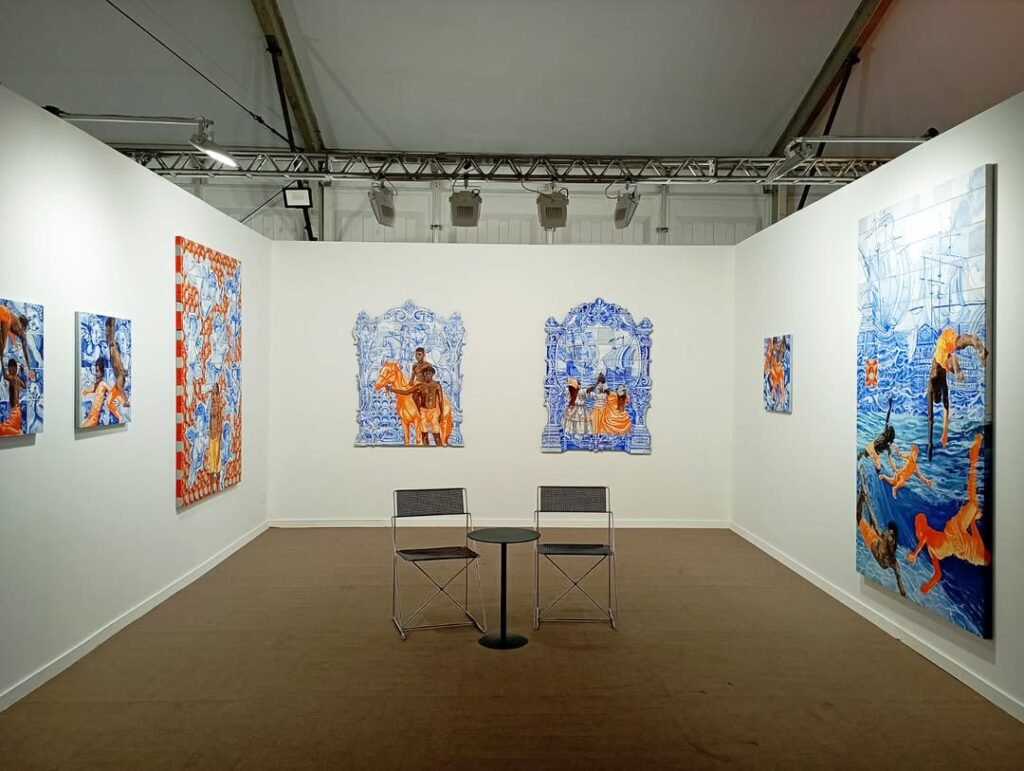
Nara Roesler
The gallery also takes part in the SOLO sector with artist Asuka Anastacia Ogawa, who presents works created during residencies in Salvador and São Paulo, exploring her Afro Brazilian and Japanese ancestries. Ogawa previously represented by Blum Gallery New York, had already held international exhibitions, including Soup at Henry Taylor’s Los Angeles in 2017 and Feijão at Half Gallery New York in 2019.
Following the closure of Blum Gallery this year, she is now exclusively represented by Nara Roesler, collaboration that had already begun with her first solo exhibition at the São Paulo’s Gallery in 2024. At Art Basel Paris 2024, she presented a solo booth with Blum Gallery, showcasing new works exploring themes of animism and cultural rituals. During ArtRio this year, three of her paintings were sold, ranging from $20.000 to $45.000, reflecting strong collector interest.

Fortes D'Aloia & Gabriel
In the SOLO section, the highlight was an unprecedented project by OSGEMEOS, featuring five large-scale paintings and a tapestry that expands their dreamlike universe, affirming graffiti as a constantly evolving language. It has been a success not only in terms of visitation but also with works sold and others under negotiation. Additionally, the standout of the booth is the unprecedented tapestry project they are presenting for the first time.
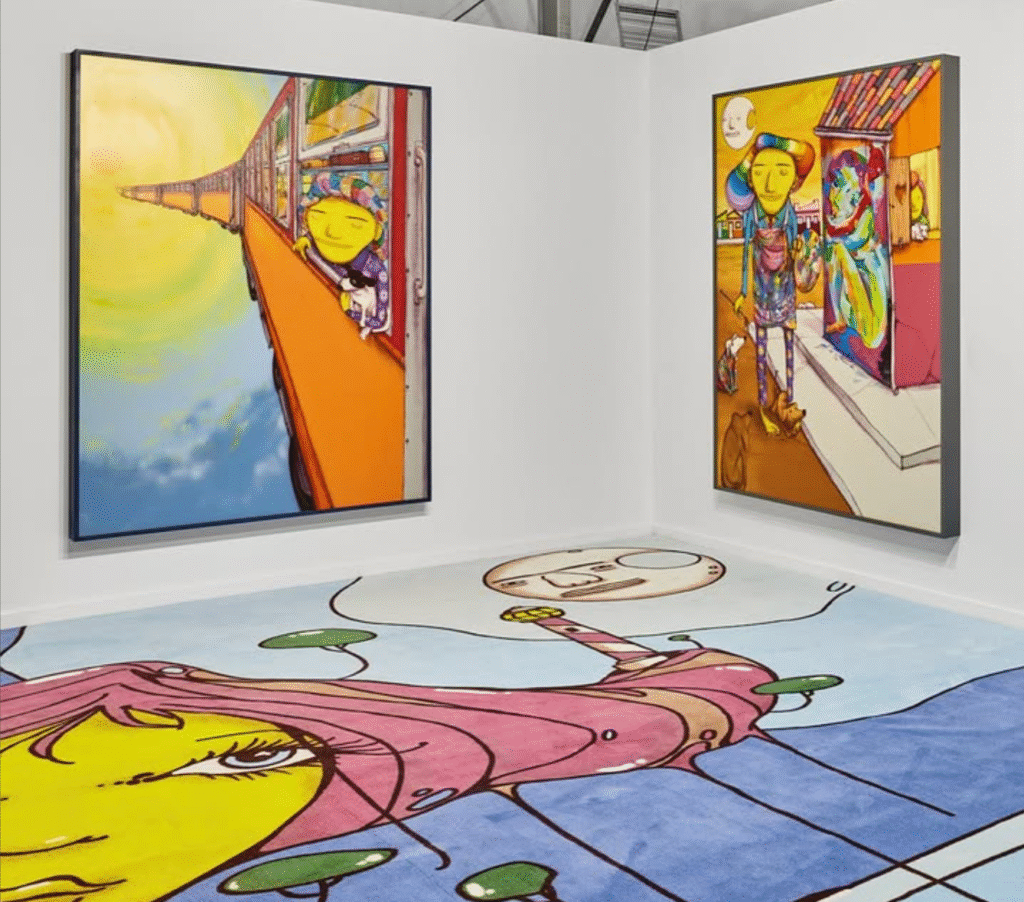
Carmo Johnson Projects
Carmo Johnson Projects presented a compelling program at the fair, highlighting both indigenous and contemporary voices from Brazil. The gallery showcased the work of Kokir, a collective rooted in Kaingang traditions, which transforms discarded industrial materials and natural fibers into intricate woven forms that reflect both resilience and cultural memory.
It also presented pieces by MAHKU who are preparing large-scale mural projects in Belo Horizonte and Belém, including a commission for the Museu Goeldi, a landmark institution dedicated to indigenous cultures in Pará.
The Bahian artist Roney George, whose paintings draw from the imagery of the sertão, Afro-Brazilian culture, Catholicism, and Candomblé, sold out during the fair, with each work fetching R$45.000, underscoring the growing interest in his practice.

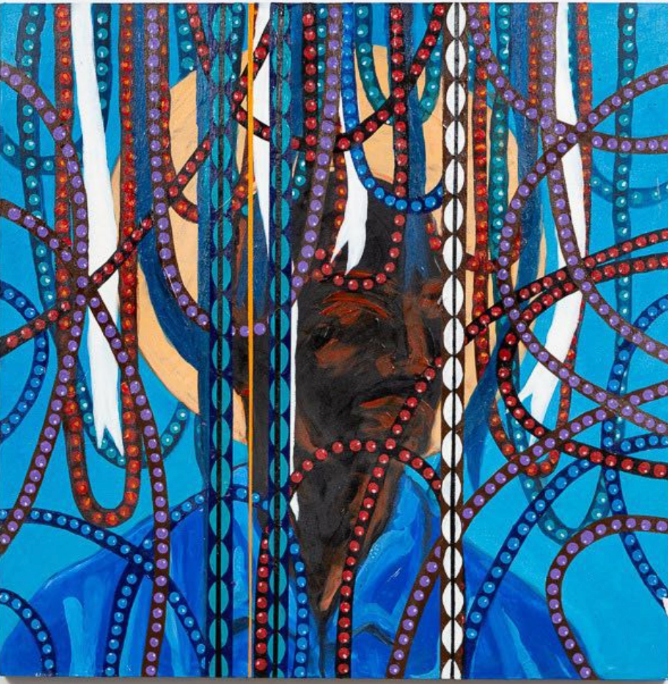
Danielian
The gallery solo show featured Álvaro Seixas, presenting his project that engages with art history, social critique, and the dynamics of the art market. In this series, Seixas appropriates L’Enseigne de Gersaint by Jean-Antoine Watteau (1684–1721) to explore themes of vanity, commerce, and social hierarchy, connecting 18th-century motifs to contemporary art practices through provocative, chaotic, and visually rich paintings and texts.
The exhibition has generated notable buzz among collectors, with all 18 works snapped up so far, commanding prices ranging from R$1.800 to R$47.000.

DESIGN
Dobra
Once again, Galeria Dobra demonstrated its commitment to Brazilian design, presenting a curated selection of modern art and design. During the fair, the gallery sold six chairs by Joaquim Tenreiro, while a work by Frans Krajcberg, who participated in the 1989 Biennale, and a red glass table remain reserved for an important collector.
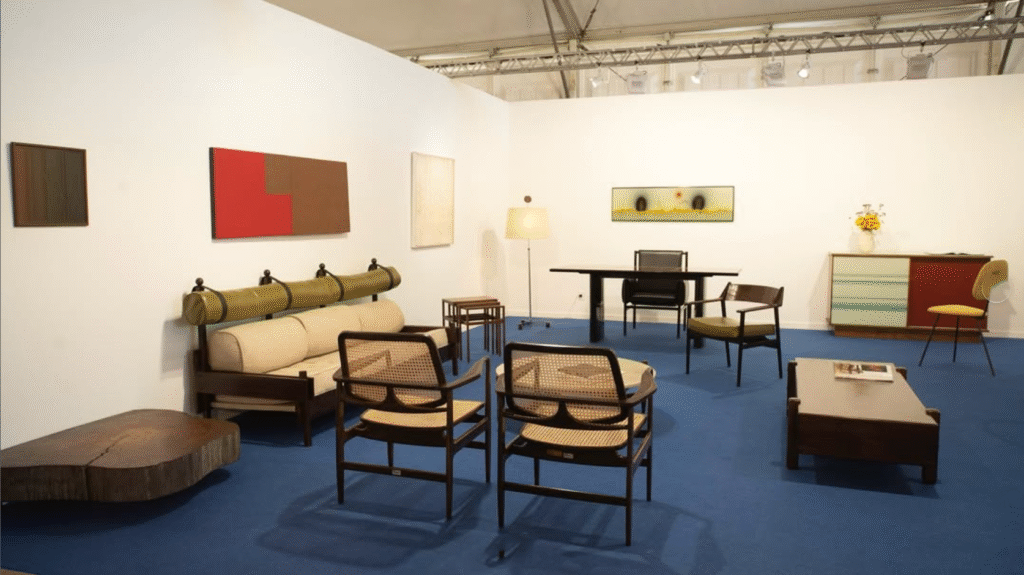
Despite the departure of Brenda Valansi, founder of ArtRio, the fair has maintained a sense of continuity in both programming and sales. Amid broader market uncertainty and U.S. trade tensions affecting Brazilian products, international institutional interest in Brazilian art remains strong, particularly for emerging contemporary voices.
Gallerists testified to “really good vibrations” throughout the fair, noting solid sales and strong engagement from collectors. The contemporary sector showed resilience, with multiple robust transactions across different booths. While the modern segment experienced only moderate activity. Brazil’s art market remains predominantly national for the local secondary market which is still facing challenges such as restoration and liquidity. The scarcity of impactful historical works and a young, constantly renewing audience that shows diminishing interest in modern art further mark the dynamics of the market.
Any reproduction, citation, or use of this article, whether in written, digital, or audiovisual form, must clearly acknowledge the author’s name and the original source of publication. This work is the result of extensive research and significant investment. Proper attribution is essential to uphold the integrity of the work and to respect the professionalism of its creation.
